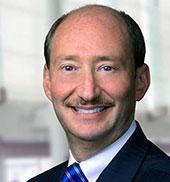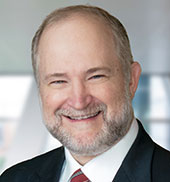Welcome to www.healthlawcheckup.com, Thompson Coburn’s newly launched health care law blog. Our Health Care Practice Group plans to use this blog to provide updates and insights on the latest developments in the health care industry. Our contributors will have many individual points of view and are excited to get their own spot in the blogosphere.
One area of interest is social media and its impact on how health care is delivered by all kinds of providers, so some observations are offered to readers in this inaugural blog.
Starting with a summary of some of the laws governing medical/clinical practice and social media is dangerous, but necessary – dangerous because readers can’t rely on this summary being current or complete. That said, these are some go-to resources on social media guidance for health care providers:
- Federation of State Medical Boards
- AMA Professionalism in the Use of Social Media
- Yale University Policy - Electronic Communication of Health Related Information
Most health care is delivered physically, in person (at least for now). So the impact of social media is greatest before (soliciting opinions, research) and after an episode of care (sharing opinions and reviews) and for the population that regularly accesses services through social media. Obvious exceptions to this are interactions facilitated by the technology underlying social media that is transforming clinical delivery every day. Skype, FaceTime and other applications enabling live visual and voice exchange between providers and patients are examples. Take note of the Oklahoma Medical Disciplinary Board’s action involving treatment of patients using Skype.
This disciplinary action is particularly relevant in light of the Federation of State Medical Boards guidance on social media. From Illinois to the great state of Rhode Island, the adoption of these standards differs widely. Rhode Island has adopted the guidance with very few changes by the Rhode Island Board of Medical Licensure.
The FSMB policy provides that a physician-patient relationship can begin online, as does the Rhode Island Board of Medical Licensure Policy. This guidance policy explicitly approves the initiation of a physician patient relationship using technologies such as Skype “without a personal encounter.”
The prospect of initiating, as opposed to continuing, a primary care patient relationship using online or social media technology represents a leap in standards. Clearly, the conduct of clinical relationships online is accepted, widespread and growing exponentially.
Questions have to do with trust, full disclosure and the opportunity to provide physical assessment in the context of an encounter for diagnostic purposes. Whether you find the option of beginning a relationship with a doctor online dismaying or not, it’s clear that professional standards organizations are validating new norms, trying to keep up with the clear trends in practice.
As regulatory positions on social media use in health care evolve, our blogging focus will report those developments and ask for your contribution to thinking on this subject. We plan to track the developments in this area, so stay tuned. We look forward to continuing the conversation soon.
Until our next post, feel free to browse our past year's worth of health care client alerts, which we've archived on our blog.


















